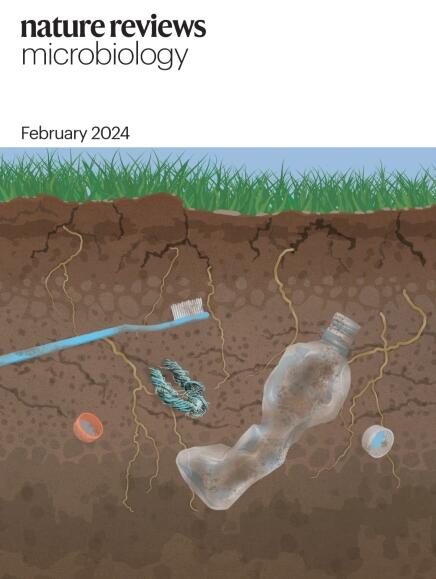Clinical course and management of COVID-19 in the era of widespread population immunity
IF 69.2
1区 生物学
Q1 MICROBIOLOGY
引用次数: 0
Abstract
The clinical implications of COVID-19 have changed since SARS-CoV-2 first emerged in humans. The current high levels of population immunity, due to prior infection and/or vaccination, have been associated with a vastly decreased overall risk of severe disease. Some people, particularly those with immunocompromising conditions, remain at risk for severe outcomes. Through the course of the pandemic, variants with somewhat different symptom profiles from the original SARS-CoV-2 virus have emerged. The management of COVID-19 has also changed since 2020, with the increasing availability of evidence-based treatments in two main classes: antivirals and immunomodulators. Selecting the appropriate treatment(s) for patients with COVID-19 requires a deep understanding of the evidence and an awareness of the limitations of applying data that have been largely based on immune-naive populations to patients today who most likely have vaccine-derived and/or infection-derived immunity. In this Review, we provide a summary of the clinical manifestations and approaches to caring for adult patients with COVID-19 in the era of vaccine availability and the dominance of the Omicron subvariants, with a focus on the management of COVID-19 in different patient groups, including immunocompromised, pregnant, vaccinated and unvaccinated patients. In this Review, Meyerowitz et al. examine the clinical presentations of COVID-19 in the era of widespread population immunity and explore current approaches to managing COVID-19 across different patient groups.


广泛人群免疫时代 COVID-19 的临床过程和管理
自 SARS-CoV-2 首次在人类中出现以来,COVID-19 的临床影响已经发生了变化。由于先前的感染和/或疫苗接种,目前人群的免疫水平很高,这与严重疾病的总体风险大大降低有关。但有些人,特别是免疫力低下的人,仍有可能出现严重后果。在这次大流行过程中,出现了一些症状特征与原始 SARS-CoV-2 病毒略有不同的变种。自 2020 年以来,COVID-19 的治疗方法也发生了变化,主要有两大类循证治疗方法:抗病毒药物和免疫调节剂。要为 COVID-19 患者选择合适的治疗方法,需要深入了解相关证据,并认识到将主要基于免疫缺陷人群的数据应用于当今患者的局限性,因为这些患者很可能具有疫苗衍生和/或感染衍生的免疫力。在本综述中,我们总结了在疫苗可用和奥米克龙亚变种占主导地位的时代,COVID-19 成年患者的临床表现和护理方法,重点关注不同患者群体(包括免疫力低下、妊娠、接种疫苗和未接种疫苗的患者)的 COVID-19 管理。
本文章由计算机程序翻译,如有差异,请以英文原文为准。
求助全文
约1分钟内获得全文
求助全文
来源期刊

Nature Reviews Microbiology
生物-微生物学
CiteScore
74.00
自引率
0.50%
发文量
149
审稿时长
6-12 weeks
期刊介绍:
At Nature Reviews Microbiology, our goal is to become the leading source of reviews and commentaries for the scientific community we cater to. We are dedicated to publishing articles that are not only authoritative but also easily accessible, supplementing them with clear and concise figures, tables, and other visual aids. Our objective is to offer an unparalleled service to authors, referees, and readers, and we continuously strive to maximize the usefulness and impact of each article we publish. With a focus on Reviews, Perspectives, and Comments spanning the entire field of microbiology, our wide scope ensures that the work we feature reaches the widest possible audience.
 求助内容:
求助内容: 应助结果提醒方式:
应助结果提醒方式:


